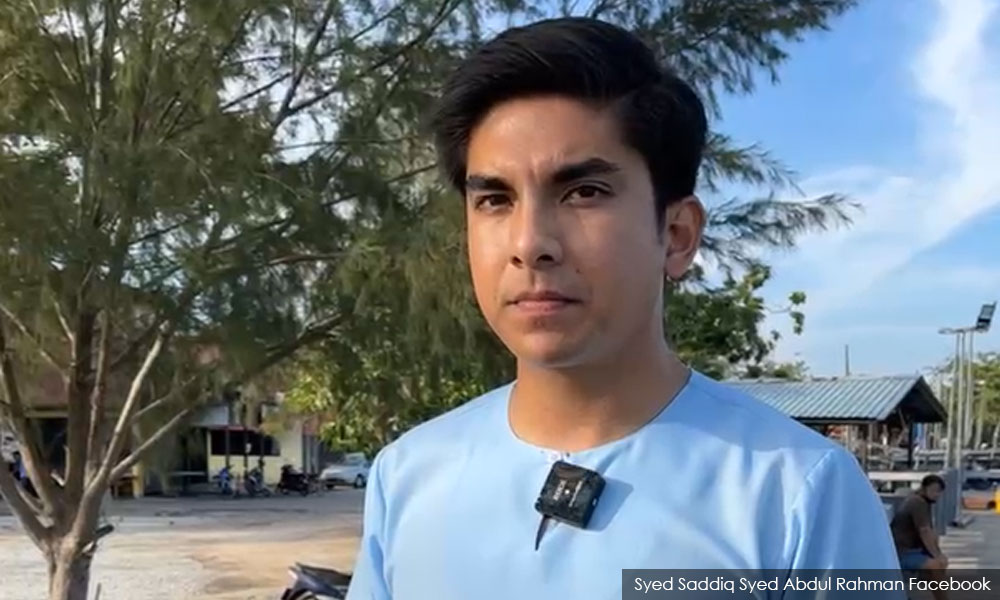LETTER | Based on Muar MP Syed Saddiq Syed Abdul Rahman and most readers’ comments on the proposed generational endgame for tobacco by Health Minister Khairy Jamaluddin, there seems to be a lot of misunderstanding or lack of knowledge on this.
Below is what little I know and hope it helps with understanding and knowing a bit more.
The ban is only for those born after 2005, so if the bill is passed this year, those aged below 18 and those yet to be born will not be allowed to buy cigarettes forever. Those over 18 can still buy and smoke and when this lot or generations of people have gradually passed on in maybe 100 years from now, there should be no more smokers.
The generational endgame is to stop "replacement smokers", meaning those aged below 18 and those who are not born yet will not become smokers and will replace smokers aged over 18.
There is likely to be a minor impact for the next 50 years or so for the small retailers or tobacco industry selling cigarettes as it can still be sold to those over 18 even after the law is passed.
The impact is slow, gradual, and minor, and manufacturing and selling cigarettes will only likely become a sunset industry 50 or more years after the bill is passed.
Ironically, there was no outcry from Syed Saddiq or most of the public when the roadmap towards zero single-use plastic was launched in 2018. The plastic industry is a much bigger industry than tobacco but not many were concerned about the financial impact on the retailers or the manufacturers except the manufacturers themselves.
Perhaps there was a realisation of the grave health dangers to humans and the environment, shame of being one of the biggest dischargers of plastic into the seas and being a dumb site for plastic from other countries.
We now know microplastic is in our bodies but are not quite sure of the health impact. For tobacco, it is common knowledge it is a primary cause of premature mortality and morbidity in Malaysia.
Our healthcare system is already underfunded and under great strain and if we can reduce one major source of ill health and fatality and use the savings for other health issues, a lot of lives can be saved.
A 2018 report found that most smokers were from those with lower education levels and those earning the least. A politician once observed when visiting the poor to check on their needs, that most of the menfolk had a pack of cigarettes in their shirt pocket, even though they struggled to buy necessities.
If the poor stop smoking, they might have money to buy more and better necessities and have better health and maybe can pull themselves out of poverty.

Even now, there is a big black market for cigarettes because they are taxed heavily, not because there is a scarcity. Black marketing rears its ugly tentacles when there is scarcity and high taxes, not a lack of buyers. Buying cigarettes will still be legal for anyone over 18 even when the bill is passed.
Once again, note that the ban is only for those aged 18 and below or yet to be born. The population under 18 in Malaysia in 2017 according to the Statistics Department is around 9.6 million and present figures would conservatively remain the same.
The smoking rate according to a 2020 report was at 22.5 percent of the population, or approximately 7.4 million. Using the smoking rate of 22.5 percent and the under 18 population of 9.6 million, this works out to 2,160,00 but it is likely to be very much lower.
For arguments, let’s say it is at 500,000, that’s a lot and of great concern. In the first place, they are not allowed to buy or consume cigarettes and yet this could be about half a million of our youth smoking.
At this age, it is still highly possible to get them off smoking. With another layer of legislation prohibiting the sale of tobacco to them, the chances of these youths continuing smoking will be heightened.
As to this generational endgame spawning others based on moral and religious grounds, we hope the young like Syed Saddiq, his party Muda and youth in other parties will be pragmatic, more moderate, or even liberal, practice democratic functions and ideals and be tolerant.
We hope the young will not carry old political baggage or norms and use morality and religion to sow and cultivate polarisation, mistrust, and fear. That our young not take this slippery slope of misusing morals and religion is the only way a divided, divisive and suspicious society cannot exist.
This generational endgame is novel, innovative, radical, a catalyst for dynamic change and is powerful legislation to discard old and unhealthy political and health habits. The youth should be standing up and fronting for this. They must not get old before their time and bring the same old stodgy proposals to the table which results in the same old problems.
Syed Saddiq, support this and later champion the bills for the generational endgame for single-use plastic bags and bottles and fossil-fuel vehicles as you did for Undi18. Path the way for youth to step up to lead and live in a smoking, single-use plastic, and greenhouse gas-free environment.
The views expressed here are those of the author/contributor and do not necessarily represent the views of Malaysiakini.

